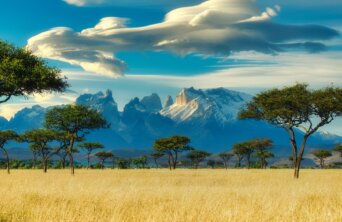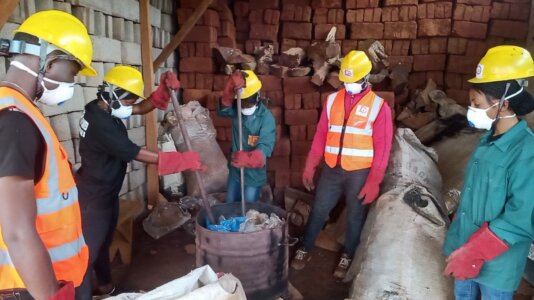- About
- Topics
- Picks
- Audio
- Story
- In-Depth
- Opinion
- News
- Donate
- Signup for our newsletterOur Editors' Best Picks.Send
Read, Debate: Engage.
| topic: | Sustainable Development |
|---|---|
| editor: | Bob Koigi |
The world is falling behind on its commitments to reach the sustainable development goals by the 2030 target. The situation has been exacerbated by emerging shocks, among them climate change, interregional conflicts and COVID-19. The targets themselves have in some cases been diminished or downplayed by various parties that attempt to forego making changes, which has therefore decreased the financing behind the efforts to reach the SDGs.
African countries continue to be buffeted by the vagaries of weather, debt burdens and high costs of borrowing, as well as by food shortages due to disruptions in global supplies. At the same time, as the continent looks to grow its investment and infrastructure portfolio and meet the daily needs of its people, it has been keen to tap into innovative and sustainable ways of financing these needs.
While the conventional financing models have at times proven difficult in raising capital due to their exorbitant rates and low private sector investment, the Green, Social and Sustainable (GSS) bond market is emerging as an innovative financing vehicle that could foster green growth across the continent while helping close the SDG financing gap.
By allowing countries to raise money from investors through transparent channels at reasonable rates, the green bonds ensure that projects are financed across key sectors spanning agriculture, energy, water and transportation.
And while the green bonds market is still a nascent financing space in the continent, as African countries account for less than one percent of all global green bond issuances, a green recovery that is based on green investments has the potential to generate 420 percent better returns in gross value and 250 percent better returns in job creation.
The issuance of green bonds in Africa by various organisations, such as the African Development Bank and the Africa Finance Corporation, has proven the value and worth of this sustainable investment.
With the remarkable endowment of natural resources that the continent has, from rainforests and abundant solar and wind energy, the future of financing in Africa is green. The continent has proven that it is keen on investing in its planet, a theme associated with this year’s Earth Day.
To bolster that commitment and ensure that it develops sustainably in years to come, the continent should focus on projects, initiatives and financing that balance between economic growth and the well-being of the people and the environment. The green bond market demonstrates this and should be embraced.
Photo by Thomas Bennie on Unsplash

